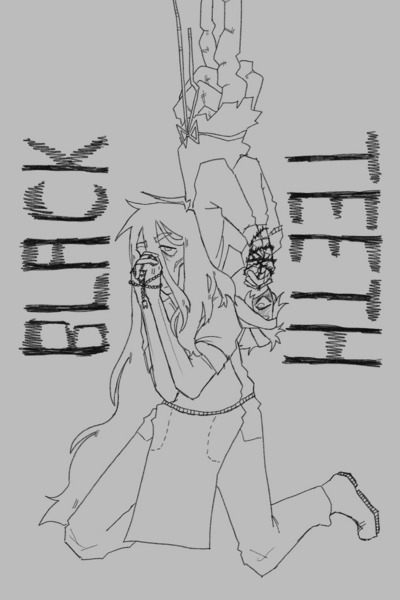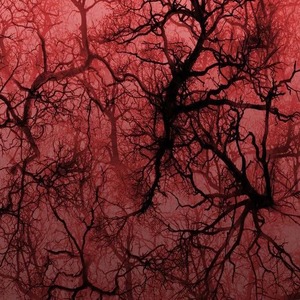This chapter contains the following trigger warnings:
Graphic depictions of gore
Thoughts of self harm (particularly using needles)
“What on Earth were you doing?” Mr. Limbus said the moment Machiavelli returned.
“A visitor came. He didn’t know it was a working day for me, so I greeted him and sent him upstairs,” Machiavelli smelled faintly of bleach to his client, a now uncommon smell in the era of lemon or lavender scented cleaning supplies. “I apologize greatly for my absence, and I appreciate your patience. I’ll cover part of your copayment myself as an extent of my gratitude.”
The idea of paying less for the service made the heralds of impatience leave Mr. Limbus’ face slowly. Not all at once–he was still frustrated, after all. He was thankful he had no other business today, at the very least, or he would have walked out. Perhaps if he was a braver man.
“Alright then,” Mr. Limbus said, settling down in the dental chair again, “get to it.”
Machiavelli’s forehead simmered with guilty sweat as he donned a fresh mask and pair of gloves. Mr. Limbus’ eyes focused on him more intensely than before, as if he assumed Machiavelli would sneak off again when he wasn’t looking. The doctor resumed his work. Doing a final look over before rinsing took little time at all compared to the intricate cleaning from earlier. Plus, his hands and eyes moved faster, hoping to be relieved from the uncomfortable glare of Mr. Limbus. And his ‘visitor’, as he had half-lied about, laid upstairs. Machiavelli prayed in his head. He hoped the stranger was not faking his injuries and had stayed in place. Most of his private matters–business papers, his kids’ belongings, and so on–occupied various spaces around the house. He hoped the stranger was not going through them this very second. Machiavelli could hear nothing upstairs, his senses torn between his work and his thoughts.
Mr. Limbus flexed his jaw when Machiavelli finished the process of rinsing and draining. He promptly stood up and walked out of the room wordlessly. Now was the moment of truth. Machiavelli had cleaned the front step and the trail leading to and up the stairs in a frantic barrage of wiping and drying. A couple of sprays of air freshener could only do so much against the metallic stench still emanating from upstairs. Machiavelli followed Mr. Limbus to his front desk.
“Thank you for coming in today,” The doctor said as he sat down, “and again, I apologize about the interruption.”
“I get it. You don’t need to go crazy with apologies,” Mr. Limbus frowned, tilted towards the radio. He sneezed into his elbow after a moment.
“Bless you.”
Mr. Limbus sniffed. “Tone down the air freshener, or get something more natural. Smells like cleanliness is being shoved down my throat in here.”
“I appreciate the input.” Machiavelli slid a 20 dollar bill across the counter. “Take this as part of the copay. It’s been a pleasure doing business with you.”
Mr. Limbus’ eyes lit up, a soundless expression of appreciation, as he pocketed the bill. “Goodbye.”
And with that, the back door opened and shut, and the footsteps of Mr. Limbus faded into the distance. A car swerved away–or was it Machiavelli’s imagination stretching over his expectations? There were no screams, no racing steps demanding an explanation for the blood. His thoughts steadied, congratulating himself for cleaning. For cleaning enough.
In years prior, Machiavelli had to deal with a continual stream of patients all days of the week except Sunday, from 9 to 5. But now it was a wonder for more than a handful of people to come in any given week. Nobody else was going to come today, not in this weather, not with Halloween just around the corner. Machiavelli didn’t mind it much. Retirement was fast approaching, and his savings covered the costs that his remaining business could not. Still, mere boredom threatened his happiness with every hour spent sitting at his front desk. The seemingly highest rung of the ladder left him empty, grasping for something higher to climb. But today brought a stranger to his door. Likely not for dentistry, of course, but perhaps as a piece of enrichment for an otherwise bland series of days and weeks.
Speaking of which, the stranger laid on the couch, still except for the slow rise and fall of his chest. He had his arms wrapped around his knees, curled up, when Machiavelli walked in. The man blinked slowly as the doctor approached. He hoisted himself into sitting up, with one arm strained against the couch. The other one hung loosely at his side. His nose appeared barren, smeared, picked at–virtually no flesh dangled off of it, leaving a void of bone to face the world.
“I told you I would be back,” Machiavelli said, taking a seat on the floor.
The man squinted, as if unsure what to think.
“How are you doing? I’m surprised you’re awake,” the doctor admitted.
The man twisted his body around, facing the wall as he spoke, “...Fine.”
“You do speak, then. I almost thought I was imagining things earlier.”
“Ha,” the man responded dryly, “...thanks for the painkillers.”
“It’s no problem,” Machiavelli nodded, a short-lived motion when he realized the man couldn’t see him at this angle.
“...You didn’t call anyone, right? No police, or hospitals, or…”
“No one. But why shouldn’t I?”
The man glanced back at Machiavelli. Their eyes met, both brown, both unsure. Two dogs in separate cages, yet to be released. A sense of malice washed over Machiavelli, an unusual sensation in his age of silence and inaction. Who was he talking to, really? Underneath the bandages–smeared with his own bloody touch–laid a crime scene. What circumstances had created such maiming? Why had he offered such tenderness to this stranger? But the strange feeling subsided shortly after it arrived. The doctor would be able to take the man on in a fight, given how the stranger had lost so much blood not long ago. Would it come down to a fight? The man turned away as he spoke once more.
“...I don’t have any money. And I’m not interested in yours,” he said.
“That’s reassuring,” Machiavelli frowned.
The stranger’s words were punctuated by wheezing breaths, “...I just need to stay somewhere and recover… for a few days. Then I’ll be out of your way.”
Machiavelli stiffened. “My home is not a hotel.”
“I never said it was,” the man’s voice quivered slightly, “Just let me lay here for a day or two, and then I’ll be gone. I’ll even help you clean up the blood from earlier when I feel better.”
“I got most of it, but thank you, I suppose,” The doctor tried to turn his body to see the man’s face, but he kept moving in response. “What’s your name?”
The man paused. “...Malin.”
“Malin. Well, it’s nice to meet you. I said my name earlier, it’s–”
“Lysander Machiavelli. You’re a dentist… right?”
“I still don’t understand how you’re awake, much less remembering details like that.”
“Your sign out front,” Malin grimaced and tilted his head back towards Machiavelli, resting on his own arms. Now that the panic of their initial meeting had mostly passed, the two finally got a good look at each other. Machiavelli saw a thin man dressed in a coat, trousers, and boots–and recently bundled in bandages, of course. He smelled heavily of metal, of curdling blood, so sour and pungent that the smell of Machiavelli’s cleaning dared not enter the hall. Somehow, neither of them minded the smell. The doctor couldn’t exactly figure out his age from a glance, but the dullness of his eyes, the creases around his mouth, and the strained, dry flesh covering his knuckles put his estimate at around 50 years old. The scratches through parts of his clothes had been cleaned with the rag he offered the stranger earlier. Malin had pulled his sleeves up and over his forearms, covering some of the damage. A chill coursed through Malin’s spine as Machiavelli’s eyes traced him.
“I forgot I put that out there sometimes,” Machiavelli said.
“Hm,” Malin turned away again.
To his eye, Machiavelli appeared massive, irregularly elongated, stretched thin and taut like a piece of cloth pinned up to dry. His hair still swung behind him, a faint blue compared to the beige walls around them. A long face with vivid brown eyes–too vivid compared to the rest of his dullness–gazed at him with the focus of a house cat on a bird fluttering in the window. The high, well-defined cheeks and eye bags matched the wiry build of his limbs. His gloves and mask were off now, and the bandages on his fingertips made a small similarity between the two. Teeth–meticulously cleaned, no doubt–hid under his lips like a body under a worn shroud. Presented before him was a man, starving. For what, Malin could not tell just yet. To keep the words of this starvation down, however… How long would this one last?
“Do any of your other wounds need ointment?” The doctor said, breaking the silence. His teeth flashed as he spoke, obscenely white, confirming Malin’s thoughts.
“No, they’re fine as is. But if you have a spare sewing kit, I’d like to patch up my clothing. That’s all I need.”
At this, Machiavelli stood up. He towered over the couch, but his gaze flickered to elsewhere in the house. “Just wait here.”
Malin could hardly move without something bleeding–all the twisting of avoiding Machiavelli’s eyes had reopened the marks along his arms and middle section, which he stuffed against the couch and its ragged blanket. The painkillers and gauze pressed his head into a perpetual heaviness. His empty eye socket still begged for air, still writhed in its own filth, but the buzz of neurons died slowly. Darkness emerged on the left side of his vision. Pulsing blood pounded through his covered ear. Beyond them, the yet-unfamiliar house groaned and huffed out a shaky breath from the ventilation. What remained of his nose breathed in whatever the structure expelled, burning against his exposed skin.











Comments (0)
See all